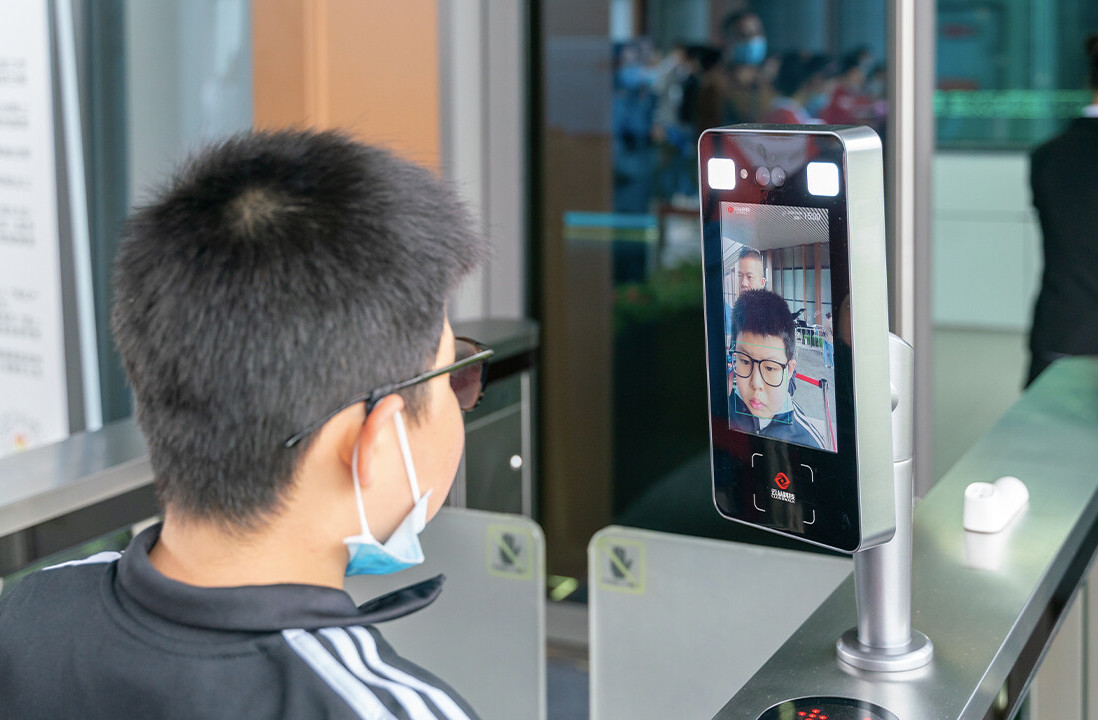
China is already home to extensive facial recognition technology, using it to identify criminals, monitor students’ attention, and even let citizens purchase train tickets.
Now, in an attempt to enrich its surveillance arsenal, reseachers from the country have developed a 500 megapixel facial recognition camera capable of capturing “thousands of faces at a stadium in perfect detail and generate their facial data for the cloud while locating a particular target in an instant.”
The AI-based cloud camera service was developed in collaboration between Shanghai-based Fudan University and Changchun Institute of Optics, Fine Mechanics and Physics of Chinese Academy of Sciences in Changchun, according to Global Times.
The “super camera” is also said to have the ability to shoot panoramic photos with a clear image of every single human face, something that can be put to use in extremely crowded public spots.
The facial recognition system has been designed keeping national defense, military and public security in mind, the report said, adding it could “serve as a watchdog at military bases, satellite launch bases and national borders to prevent suspicious people and objects from entering or exiting.”
The surveillance panopticon
The development comes as civil liberty groups and lawmakers across the world are waking up to the woes that might come with increased facial recognition technology, not to mention raising privacy concerns in a country well-known for its entrenched surveillance of its citizens.
Chinese cities are the most monitored in the world, with an estimated 200 million CCTV cameras watching over its people, a figure that’s predicted to rise 213 percent by 2020 to 626 million.
It’s no secret that China has been hard at work designing a statewide Social Credit System that employs a reputation-based behavioral scoring methodology to assess its 1.4 billion people and millions of businesses.
Earlier this month, the government announced plans to expand the controversial practice for a corporate ranking system of over 30 million companies in the nation.
The algorithmic governance system, which rewards good behavior with extra privileges and restricts those with lower scores from traveling, or getting government jobs, is expected to be rolled out officially next year.
The surveillance dragnet is made possible by a fleet of CCTV cameras equipped with facial recognition, body scanning, and geo-tracking technology to exert digital control and monitor individuals’ whereabouts.
Troublingly, China has taken its invasive facial recognition-enabled mass snooping infrastructure to new heights by targeting the oppressed Uyghur Muslim minority in Xinjiang province, including tracking members of the community and mapping their relations with friends and family.
Then two months ago, it emerged that the monitoring expanded beyond the residents of the region to encompass tourists, who had their phones scanned for content it considers threatening, aside from vacuuming their text messages and contacts.
The unprecedented digital spying apparatus makes China a pioneer in applying next-generation technology to constantly watch its people, potentially ushering in a new era of automated discrimination and racial profiling while building a high-tech authoritarian future.
Viewed in this light, the new 500 megapixel camera could make the country’s sweeping social control operations a lot more efficient.
Not just China
Elsewhere, Amazon and Palantir’s deals with government agencies in the US have attracted scrutiny, while a UK high court recently ruled in favor of police using automatic facial recognition technology to search for people in crowds. San Francisco has banned law enforcement from using it altogether.
India, meanwhile, has invited bids to build a system in order to centralize facial recognition data captured through surveillance cameras across the country and match them against a national criminal database.
Not to be left behind, France plans to follow India’s footsteps with an Aadhaar-like biometric citizen ID program called Alicem that leverages facial recognition to counter identity theft and “increase confidence in electronic transactions within the European Union for online services.”
Complicating the matter is the lack of oversight and data protection regulations to prevent exploitation of such sensitive data for dubious purposes.
“A system that can identify criminals is invaluable — facial recognition is a powerful tool,” said Nilabh Kishore, deputy inspector general of the Indo-Tibetan Border Police told Bloomberg last week. “But human intentions are also very important. You can make the best of technology, but if human intentions are wrong it can be a tool for misuse.”
Get the TNW newsletter
Get the most important tech news in your inbox each week.





